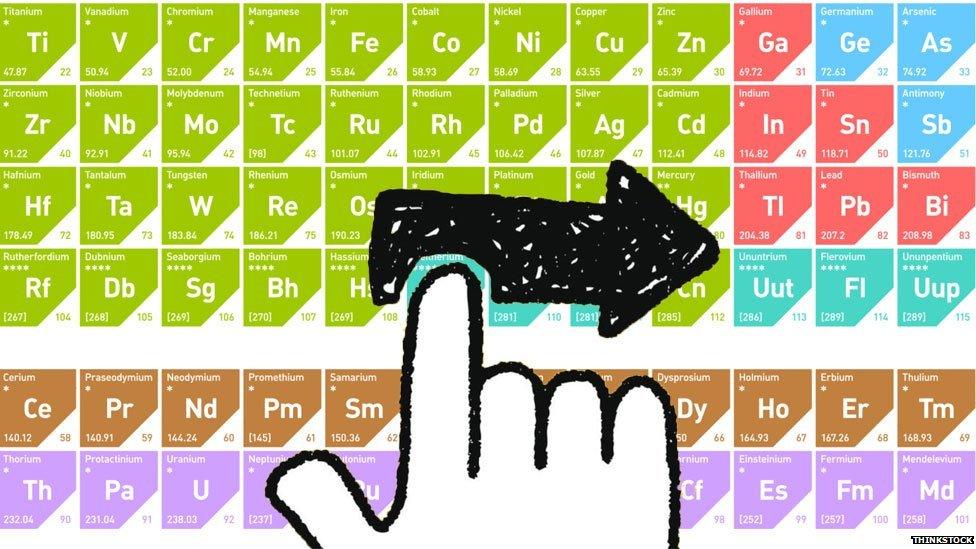The periodic table's new elements if they were on Tinder
- Published

Have you heard about the new neighbours who have just moved into the seventh row?
They have certainly caused a stir amongst the Potassiums and Strontiums of the periodic table, even the noble gases are turning their heads.
Scientists from Japan, Russia and America have discovered four new elements which can't exist on earth and only last for a fraction of a second.
They've also got strange names - but let's get to know them anyway...
Ununtrium 113 (but you can call it Uut for short)

Uut is "extremely volatile, unnatural, and unstable", according to Dr Paul Coxon, a physicist from the University of Cambridge.
Not exactly marriage material then.
All four of the new elements have been verified, external by the International Union of Pure and Applied Chemistry.
Ununpentium 115 (Uup)

Catchy names eh?
Ununpentium, or Uup, has been called "superheavy", but hey it might be your thing.
Like the other new elements it's synthetic, and also expensive. So don't expect to split the dinner bill.
Ununseptium 117 (Uus)

If you're looking for something longer term, then Uus could be the safer bet.
Dr Paul thinks it's a little more stable, so therefore slightly longer lasting.
The four new additions were made by smashing elements together in a laboratory.
But they are really heavy and that means they decay milliseconds after being formed, and you're only likely to find them when stars or black holes are created in space.
Ununoctium 118 (Uuo)

No one knows the melting or boiling point for Uuo yet, but Dr Paul says it's a non-metal, and probably a gas.
Ununoctium is also known as a transactinide element, but don't let that put you off. It is the term used for elements with atomic numbers from 104 to 118.
The four elements are set to be given proper names over the next few months.
They can be named after scientists, minerals, or even from the stuff of myths and legend.
For more stories like this one you can now download the BBC Newsbeat app straight to your device. For iPhone go here, external. For Android go here, external.